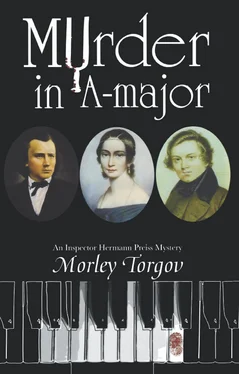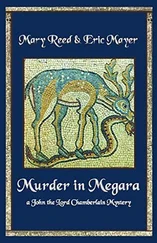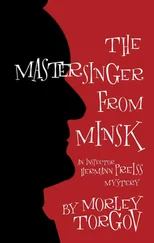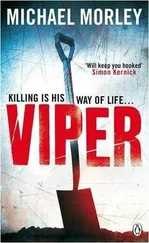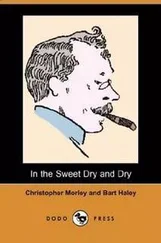Morley Torgov - Murder in A-Major
Здесь есть возможность читать онлайн «Morley Torgov - Murder in A-Major» весь текст электронной книги совершенно бесплатно (целиком полную версию без сокращений). В некоторых случаях можно слушать аудио, скачать через торрент в формате fb2 и присутствует краткое содержание. Жанр: Исторический детектив, на английском языке. Описание произведения, (предисловие) а так же отзывы посетителей доступны на портале библиотеки ЛибКат.
- Название:Murder in A-Major
- Автор:
- Жанр:
- Год:неизвестен
- ISBN:нет данных
- Рейтинг книги:5 / 5. Голосов: 1
-
Избранное:Добавить в избранное
- Отзывы:
-
Ваша оценка:
- 100
- 1
- 2
- 3
- 4
- 5
Murder in A-Major: краткое содержание, описание и аннотация
Предлагаем к чтению аннотацию, описание, краткое содержание или предисловие (зависит от того, что написал сам автор книги «Murder in A-Major»). Если вы не нашли необходимую информацию о книге — напишите в комментариях, мы постараемся отыскать её.
Murder in A-Major — читать онлайн бесплатно полную книгу (весь текст) целиком
Ниже представлен текст книги, разбитый по страницам. Система сохранения места последней прочитанной страницы, позволяет с удобством читать онлайн бесплатно книгу «Murder in A-Major», без необходимости каждый раз заново искать на чём Вы остановились. Поставьте закладку, и сможете в любой момент перейти на страницу, на которой закончили чтение.
Интервал:
Закладка:
What was the point of disputing Schumann's accusation? No excuse I could offer would convince him that I had not been derelict. “I will see what I can do, Maestro,” I said.
The study door opened and Clara Schumann entered. “Robert dear,” she said quietly, “the carriage is here.”
Meekly, almost mechanically, a figure without strength, without hope, Robert Schumann, his hand in hers, allowed his wife to lead him to the open door of the house, where the two attendants waited. He said to Clara, “My pens and manuscript paper…you packed them?”
“Of course, Robert,” she replied. “And your notebooks too, the ones with your most recent sketches.”
“Clara, promise me you'll see to it that the oldest children keep up their music lessons, especially Marie, bless her. And make sure the jar on the writing desk is well-stocked with pfennigs. They must have their rewards, you know! By the way, Clara, when Marie has mastered those finger exercises Carl Czerny sent for the children, I want her to have a whole thaler to spend as she pleases.”
Schumann turned to Brahms. “I mean to compose another symphony, Johannes,” he said, smiling at his protégé. “It will be my fifth. I've already sketched the opening movement. It will be like Beethoven's fifth, only better, more melodious. One of these days, my dear Johannes, you must try your hand at composing a symphony.”
Brahms stepped forward and gave Schumann a brisk embrace. “Perhaps I'll get around to it by the time I'm forty,” he said.
“Forty! My God, Johannes, I'll be serenading Satan by then!” Schumann said, giving Brahms a fond poke on his arm. Then, turning his back on Clara and Brahms, with an attendant at each side, Schumann started out of the house.
Suddenly, he came to a halt and turned about. “I've forgotten something,” he called to Clara.
“Forgotten what, Robert?”
“I must get it,” he said, elbowing away the attendants and moving back into the house with resolute steps. I watched him enter the study, pull open the centre tray of his worktable, and remove an object which I could not recognize until he held it aloft for all to see with an air of triumph.
“My trusted tuning fork!” he said, smiling at it as though the thing was human.
Instantly, Clara Schumann's eyes and mine met, though not a word was said.
A minute later Schumann and his attendants were tucked into the carriage, ready for the six-hour journey to Bonn. Another minute, and they were out of sight.
Chapter Thirty
What would you do without me, Hermann?” Helena Becker was saying in that teasing manner of hers as she ushered me into the sitting room of her small but comfortable apartment. “Your message sounded as though you couldn't wait to see me.” She took a moment to inspect me with a critical eye. “I note that as usual you come empty-handed. Flowers would have been nice.” She'd forgotten about the gift of pearl earrings, but it would have been bad taste on my part to remind her.
“Helena, what would I do without you?” I said. ‘You have a way of making me feel humble, and God knows, a man needs a healthy dose of humility now and then.”
Offering me a chair, Helena said, “Now that you've gotten that lie off your chest, what really brings you here?”
“ This brings me here,” I replied. I took a large white handkerchief from my coat and unfolded it to reveal a tuning fork, which I laid carefully on a table between us.
“A present for me?” Helena said.
“Hardly,” I said.
“Just as well,” Helena said. “It's rather badly stained, isn't it?”
“Those are bloodstains.”
Helena bent to take a closer look. “How fascinating,” she said without a trace of enthusiasm.
I said, “What you're looking at happens to be a murder weapon.”
Helena's eyes glazed over. “Tea or coffee?”
“I've no time for either. What I need are your ears and your cello.”
“You do sound desperate, Hermann.”
“I'm under extraordinary pressure, Helena. The Commissioner, you understand.”
She laughed. “That toothless old dinosaur?”
“That toothless old dinosaur would love nothing more than a good excuse to sack me. He says I'm a thorn in his side. Go fetch your cello, because we have an urgent experiment to perform, you and I.”
I watched her remove the honey-coloured cello from its case, seat herself, and set the instrument between her legs, her bow at the ready.
“Now what?” she said.
“Let me hear your ‘A’,” I said.
Helena lifted her bow from the strings. “Please, Hermann,” she protested, “not this Schumann thing again!”
She shrugged as if to say I, not Schumann, was the person going mad, then brought the bow across the thinnest of the four strings. “I think I'm a bit flat,” she said, frowning, and began to twist the tuning peg for that string with her left hand while continuing to bow with her right, the resulting changes of pitch sounding like the wailing of an alley cat. At last she was satisfied that the ‘A’ was where it ought to be.
“Now listen carefully, please,” I said. I took the tuning fork and struck it hard against the marble mantle of her fireplace. “Well?” I said.
Helena's frown returned. “Sounds sharp to me. Not by much, but just enough to be annoying. Are you sure it's a tuning fork and not the kind you eat with?”
“Listen again, just once more.” I struck the fork even harder.
“You can strike it from now till doomsday,” she said, “but that's not a true ‘A’. Granted, it's off by just a touch, but sharp is sharp.”
“How good is your memory?” I said. “Think back to the musicale at the Schumanns’. Would you say it's the same ‘A’?”
“Let me tune my string to it,” Helena said. “Strike it again.”
Again Helena gave me the same response. “It's very much like the ‘A’ we tuned to at the Schumanns’ that night, but what's it got to do with a murder?”
I tucked the tuning fork back into the handkerchief. “I'm sorry, my dear,” I said, putting on the most officious airs I could manage, “I cannot possibly divulge the facts and circumstances of a case while it is under investigation. Anyway, I thought you found all this rather tedious.”
“What has the tuning fork got to do with a murder? Stop torturing me, Hermann!”
“Very well,” I said, “but not a word of this gets out until I say so. I found this tuning fork under Georg Adelmann's body. I had reason to believe it belonged to Schumann and that he used it as a kind of weapon to attack Adelmann in a fit of rage.”
“But what would drive a man like Schumann to do such a terrible thing?”
“He learned that a monograph Adelmann was writing about his life and career contained references-rather specific references, in fact-to some early homosexual activities Schumann engaged in. To make matters worse, Schumann was convinced Adelmann stole the Beethoven manuscript from Schumann's home, possibly on the night of the musicale.”
“You say, Hermann, that you had reason to believe Schumann was the assailant-”
“Yes, but now I believe Robert Schumann did not kill Adelmann.”
“Then who did?”
I picked up the bloodstained tuning fork. “The owner of this,” I replied.
“And that would be?”
“Wilhelm Hupfer.”
Chapter Thirty-One
I couldn't confront Hupfer solely on the strength of the tuning fork revelation. That single item of evidence, for the moment at least, had to be regarded as purely circumstantial, and certainly not enough to induce a voluntary confession of guilt. I had to satisfy myself as to Hupfer's motive for slaying Georg Adelmann. I have to admit that I owed a debt of gratitude to-of all people-Walter Thüringer. It was he who had given me the key: Hupfer's craving for money. The man must have been receiving, one way or another, substantial sums of cash. But from whom? And why?
Читать дальшеИнтервал:
Закладка:
Похожие книги на «Murder in A-Major»
Представляем Вашему вниманию похожие книги на «Murder in A-Major» списком для выбора. Мы отобрали схожую по названию и смыслу литературу в надежде предоставить читателям больше вариантов отыскать новые, интересные, ещё непрочитанные произведения.
Обсуждение, отзывы о книге «Murder in A-Major» и просто собственные мнения читателей. Оставьте ваши комментарии, напишите, что Вы думаете о произведении, его смысле или главных героях. Укажите что конкретно понравилось, а что нет, и почему Вы так считаете.
